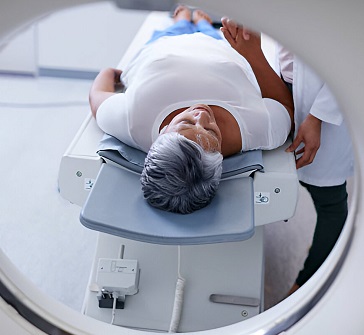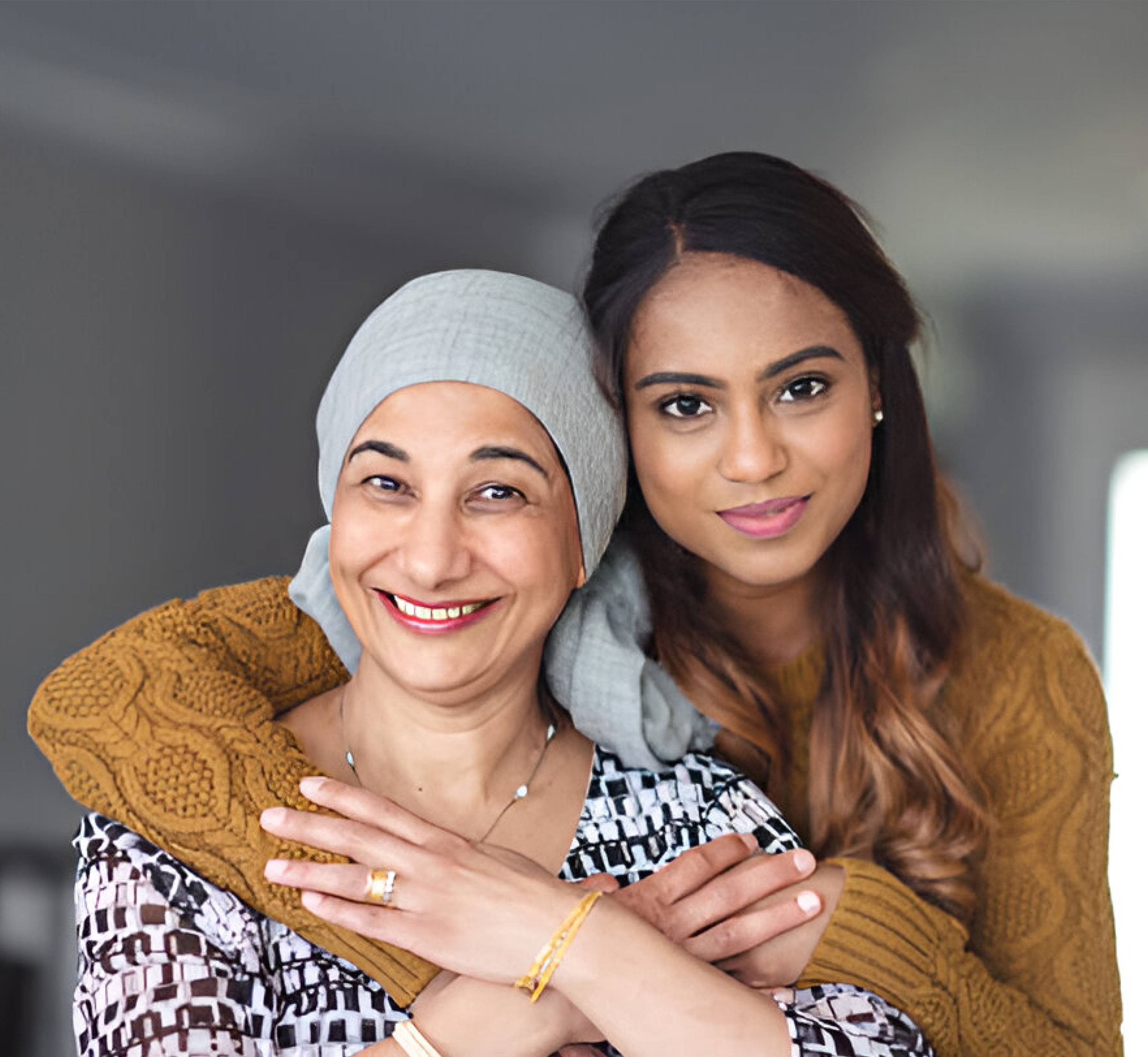 Book Appt.
Book Appt.
 Call Now
Call Now


Introduction
Immunotherapy is a cancer treatment that uses your body’s immune system to find and destroy cancer cells. Your immune system identifies and destroys intruders, including cancerous cells. Immunotherapy boosts your immune system so it can do more to find and kill cancer cells. Immunotherapy for cancer is a very effective treatment that may help some people with cancer live longer. Medical researchers are developing new immunotherapy drugs to treat more types of cancer.
Your immune system’s everyday job is to protect your body from intruders, from allergens and viruses to damaged cells that could become cancerous. It has special cells that constantly patrol your body for intruders. When they find a damaged or cancerous cell, they destroy it. That keeps cancerous tumors from growing and spreading. But cancer is a moving target. Cancerous cells constantly look for ways to dodge immune system defenses.
What cancers does immunotherapy treat?
Healthcare providers consider immunotherapy a first-line or initial treatment for many types of metastatic cancer, or cancer that’s spread. They may combine immunotherapy with chemotherapy, targeted therapy, or other cancer treatments. Providers use different types of immunotherapy to treat many kinds of cancer. Each immunotherapy type uses different elements of your immune system.
Types of immunotherapy
Immunotherapy types include checkpoint inhibitors, adoptive cell therapy (T-cell transfer therapy), monoclonal antibodies, cancer vaccines and immune system modulators.
Checkpoint inhibitors: Your immune system is a powerful defense system—sometimes too powerful. Your body has checkpoints to keep your immune system from overreacting to intruders and damaging healthy cells.
Adoptive cell therapy (T-cell transfer therapy): This treatment improves your immune system’s ability to destroy cancerous cells. Healthcare providers take your immune cells and grow them in a laboratory. Once your cells have grown, providers insert the cells back into your body so they can kill cancerous cells. CAR T-cell therapy and tumor-infiltrating lymphocyte therapy are the two main types of T-cell transfer therapy.
Monoclonal antibody therapy: Antibodies are part of the first line of defense when your immune system detects intrudes. Antibodies are proteins that fight infection by marking intruders so your immune system will destroy them. Monoclonal antibody therapy for cancer involves lab-made antibodies that can support your existing antibodies or become their attack force.
Cancer vaccines: Vaccines protect your body against certain diseases. Some vaccines, such as the vaccine against human papillomavirus (HPV), protect against an infectious disease that’s linked to anal cancer, throat cancer, and penile cancers. These vaccines prevent you from getting an infection that can later lead to cancer. Cancer vaccines don’t prevent cancer. But if you develop cancer, cancer vaccines train your body to fight it.
Immune system modulators: Immunomodulators are substances that boost your body’s response to cancer. Immune system modulators include cytokines, BCG, and immunomodulatory drugs.
Procedure
People receive immunotherapy by intravenous (IV) injection. Immunotherapy might be administered daily, weekly, monthly, or in cycles. Cyclic immunotherapy requires a rest interval following treatment. The break allows your body to generate healthy cells. The length of treatment is determined by the type and stage of cancer, the immunotherapy medicine used, and your body's response to treatment.
Benefits
Immunotherapy may be an effective treatment for cancers that haven’t responded to traditional treatment or that have come back after traditional treatment.
Risks
Immunotherapy is not effective for all types of cancer, and it may not work for everyone who receives treatment. Most immunotherapy treatments cause side effects. If your healthcare provider recommends immunotherapy, they will explain the specific treatment side effects and how they will help you manage them.
Conclusion
Immunotherapy has transformed the treatment of numerous diseases by harnessing the immune system's power to combat cancer, infections, autoimmune disorders, allergies, and other conditions. Its targeted nature enables precision action against sick cells while sparing healthy tissue, resulting in fewer adverse effects than conventional medicines.
SHALBY Sanar International Hospitals provides extensive medical procedures backed up with our state-of-the-art technology and a team of highly qualified & experienced clinical experts.

Grade 2 Endometrium Cancer | Ms. Robiyakhon | Uzbekistan | Dr. Archit Pandit | SHALBY Sanar

Male Breast Cancer Recovery Story | Dr. Archit Pandit | Cameroon | SHALBY Sanar

Ms. Nafisa’s Inspiring Breast Cancer Recovery | Dr. Archit Pandit | Uzbekistan | SHALBY Sanar International Hospitals

Stage4 colon cancer is curable - Colon cancer with liver metastasis | Kenya | Dr Archit Pandit

Patient from Kenya Treated by Dr. Archit Pandit | SHALBY Sanar International Hospitals

Double Cancer Victory: Mrs. Salma Kapoor's Inspiring Recovery Story | Dr. Archit Pandit

Patient from Uzbekistan Treated by Dr. Archit Pandit | SHALBY Sanar International Hospitals

Patient from Uzbekistan Treated by Dr. Archit Pandit | SHALBY Sanar International Hospitals

Successful Carcinoma Buccal Mucosa Surgery of a Patient from Nigeria by Dr. Archit Pandit

Successful Colon Cancer Surgery of Mr. Faraidun Kaka Bra Amin Amin's from Iraq | Dr Archit Pandit

Miraculous Recovery of a patient from Uzbekistan battling Ovarian Cancer | Dr. Archit Pandit

Successful Cancer Detection & Surgery by Dr. Archit Pandit | SHALBY SHALBY Sanar International Hospitals

Successful Colon Cancer Treatment of a patient from Iraq by Dr Archit Pandit | Surgical Oncology

Successful Glottis Mass & Carcinoma Vocal Cord Treatment of a patient from Iraq by Dr Archit Pandit

Successful Stage 4 Colon Cancer Treatment of a patient from Kenya by Dr Archit Pandit

Surviving the Odds: 56-Year-Old's Journey with Recurrent Carcinoma Vocal Cord | Dr. Archit Pandit

Surviving Recto-Sigmoid Cancer: Mr. Syamand Ahmed's Inspiring Journey

Success Story: Iraqi Patient's Liver Tumour Treatment at SHALBY Sanar International Hospitals

Cytoreductive Surgery Success: Iraqi Patient's 30cm Ovarian Tumor Removed Safely

Beating Liver Cancer: Mr. Abdirashid's Inspiring Story

Ms. Nejood's Success Over Pancreatic Cancer: A Remarkable Journey

Transforming Smiles: Revolutionary Buccal Commando Procedure

Wide Local Excision Surgery & Microvascular Reconstruction of a Cancer patient

Successful Surgery of Esophgeal Cancer

Successful Lung Cancer Surgery of Ms. Jerioth Wanjiru from Kenya

Para Thyroidectomy on Pt Jawad Kadhim Tweli from Iraq

Dr Archit Pandit discusses the fascinating case of Geeta Rani
Our doctors pen down their research findings and experiences from time to time. Their words provide deep insight into the latest techniques, technologies and other advancements in healthcare. It provides expert answers to all kinds of health questions for real-life issues.
VIEW ALL




Since the day of its foundation, SHALBY Sanar International Hospitals is committed to provide comprehensive healthcare services. It regularly organizes awareness programs in its premises and encourages outdoor healthcare activities and camps with an intent to put focus on preventive healthcare.
VIEW ALL